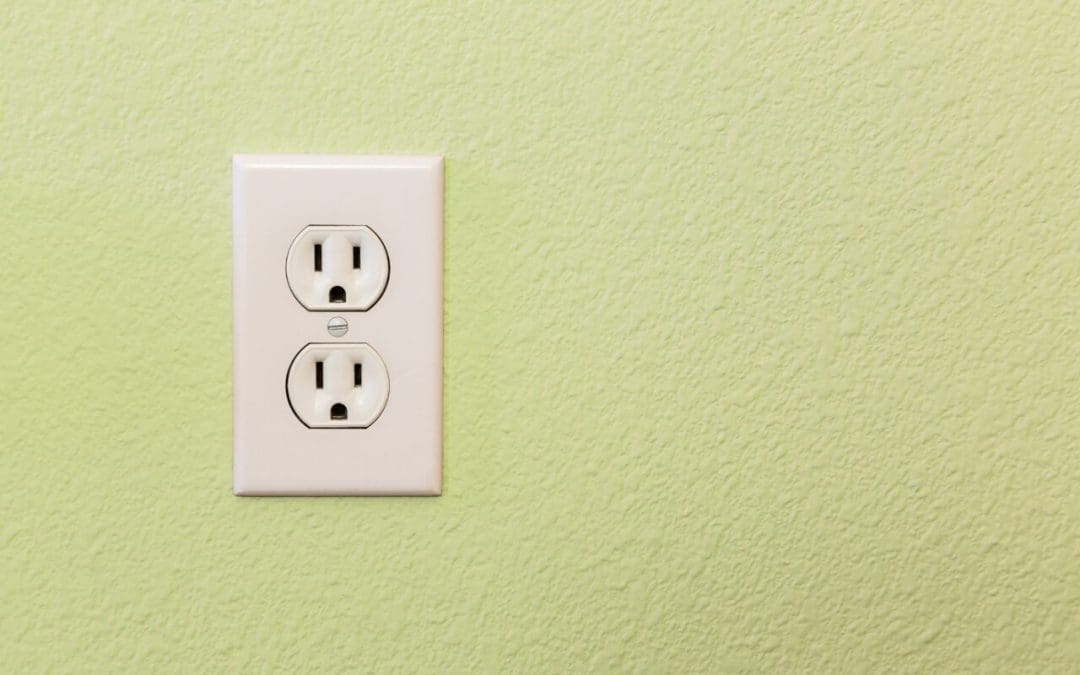Electricity powers nearly every aspect of modern life, but with this convenience comes potential hazards. From outdated wiring to overloaded outlets, electrical safety in the home is a critical topic that homeowners should never overlook. Understanding and addressing these risks can protect your family from fires, shocks, and other accidents. In this guide, we’ll explore essential electrical safety tips for homeowners to keep your home and loved ones safe.
Inspect and Maintain Electrical Wiring for Electrical Safety
Your home’s electrical system is the backbone of its power supply. Over time, wiring can deteriorate or become damaged, posing serious safety risks. One of the first steps in ensuring electrical safety is to inspect your home’s wiring periodically.
For older homes, wiring may not meet today’s safety standards. Outdated aluminum wiring, for example, is more prone to overheating than modern copper wiring. If you live in a home that is more than 30 years old, consider having an electrician evaluate your system for any signs of wear or insufficient capacity.
Additionally, be on the lookout for flickering lights, sparking outlets, or frequently tripped circuit breakers. These are telltale signs of potential electrical issues that need immediate attention. Routine maintenance and inspections can identify and address these risks before they escalate into hazardous situations.
Avoid Overloading Outlets and Circuits
Overloading an outlet or circuit is one of the most common causes of electrical fires. Plugging too many devices into one outlet can draw more power than the circuit is designed to handle, leading to overheating.
To avoid this, distribute your electrical devices across multiple outlets. If you find yourself using extension cords or power strips regularly, this may indicate that your home doesn’t have enough outlets for your needs. In this case, you should consider hiring an electrician to install additional outlets in high-use areas, such as the kitchen or living room.
It’s also important to know the capacity of your home’s electrical system. If you frequently experience blown fuses or tripped breakers, it may be a sign that your system is overloaded. Upgrading your home’s electrical panel can ensure it can handle the demand of modern appliances and electronics.
Install Ground Fault Circuit Interrupters (GFCIs) for Electrical Safety
Ground Fault Circuit Interrupters, or GFCIs, are devices that can prevent electrical shock by quickly shutting off power if they detect an imbalance in the electrical current. These safety devices are particularly important in areas where water and electricity are in close proximity, such as bathrooms, kitchens, garages, and outdoor outlets.
GFCIs can be installed in place of regular outlets, providing an extra layer of safety in areas prone to moisture. If your home doesn’t have GFCIs in these key locations, it’s highly recommended to upgrade the outlets for added protection against shock hazards.
Practice Safe Appliance Use
The safe use of household appliances is essential for electrical safety. Faulty appliances, frayed cords, or improper usage can result in fires or electrical shocks. Always follow the manufacturer’s instructions when using electrical devices, and be sure to unplug them when they’re not in use, especially when it comes to high-wattage appliances like space heaters, irons, and hair dryers.
If an appliance shows signs of damage, such as sparking, strange smells, or overheating, discontinue its use immediately and have it repaired or replaced. Avoid running electrical cords under rugs or furniture, as this can cause them to overheat or become frayed. Regularly inspect the cords of all your appliances, and never use one that appears damaged.
Protect Against Electrical Surges
Power surges can occur due to various factors, such as lightning strikes, faulty wiring, or high-powered appliances turning on and off. These surges can damage your electronic devices and appliances or, worse, cause an electrical fire.
To safeguard your home, consider installing whole-house surge protection. Surge protectors can also be used for individual appliances and electronics, offering a basic level of protection against minor power surges. A whole-house system, however, is more comprehensive and can prevent surges from affecting your home’s entire electrical system.
Childproof Your Electrical Outlets
If you have young children at home, it’s essential to take extra precautions to prevent electrical injuries. Curious little hands can easily find their way into electrical outlets, which can lead to shocks or burns.
Installing tamper-resistant outlets (TROs) is a simple yet effective solution. These outlets have built-in shutters that block foreign objects from being inserted. Another option is to use plastic outlet covers, which can be easily placed over standard outlets to prevent children from gaining access.
Educating your children about the dangers of electricity and teaching them to avoid outlets and electrical cords is equally important in creating a safe environment.
Upgrade Your Electrical System
As technology evolves, so does the demand on your home’s electrical system. If your home is older or hasn’t been updated in decades, it may not be equipped to handle the power requirements of modern appliances, entertainment systems, and smart devices.
An electrical upgrade can include installing a higher-capacity circuit breaker panel, replacing old wiring, and adding more outlets in key areas of the home. This improves safety and ensures your home is more energy-efficient and reliable.
Know When to Call a Professional
While some minor electrical tasks, like changing a light bulb or resetting a circuit breaker, can be handled by homeowners, other tasks should always be left to a licensed electrician. If you encounter wiring issues, plan to upgrade your electrical panel, or need new outlets installed, it’s best to hire a professional. Working with electricity is dangerous, and improperly handling electrical systems can result in serious injuries or even death.
By staying vigilant and proactive about your home’s electrical safety, you can reduce the risk of electrical accidents and enjoy the peace of mind that comes with a safe, functional home.
Electrical safety is not something homeowners should take lightly. From inspecting your wiring to practicing safe appliance use and upgrading outdated systems, there are many steps you can take to create a safer home. Regular maintenance and timely upgrades can prevent accidents and improve your home’s overall efficiency. By following these guidelines and calling in professional help when needed, you can protect your family and home from electrical hazards.
Electrical Safety FAQs
Why does my circuit breaker keep tripping when I use high-wattage appliances?
Circuit breakers trip to protect your home from electrical overload. High-wattage appliances like space heaters, hair dryers, or microwave ovens can cause the breaker to trip if the circuit they’re plugged into cannot handle the load. This could indicate that the circuit is being overused or is not equipped to handle high-wattage devices. You may need to redistribute the load or upgrade the circuit to handle more power.
Can faulty wiring affect my energy bill?
Yes, faulty wiring can lead to energy loss, which will raise your energy bill over time. Loose or damaged wiring can cause electricity to flow inefficiently, leading to wasted energy. Regularly inspecting your wiring, upgrading old systems, and repairing damaged circuits can improve the efficiency of your electrical system and lower your energy costs.
How do I prepare my home’s electrical system for a major renovation?
Before starting a major renovation, it’s important to assess whether your current electrical system can support the new load. Additions like new rooms, kitchen upgrades, or installing modern appliances may require an upgraded electrical panel or additional circuits. Work with a licensed electrician during the planning stages to ensure your home can handle the increased demand safely.
What are the signs of hidden electrical damage in walls or ceilings?
Hidden electrical damage can be tricky to spot but may present itself in subtle ways. Signs include unexplained buzzing or crackling sounds, scorch marks on walls or outlets, a faint burning smell, or flickering lights. If you notice any of these signs, turn off the power to the affected area and contact an electrician immediately. Never attempt to access or repair hidden wiring yourself.
Griffin Home Inspection offers inspection services to buyers and sellers in Sumter County, SC, and the surrounding areas. Contact us to schedule an appointment.

